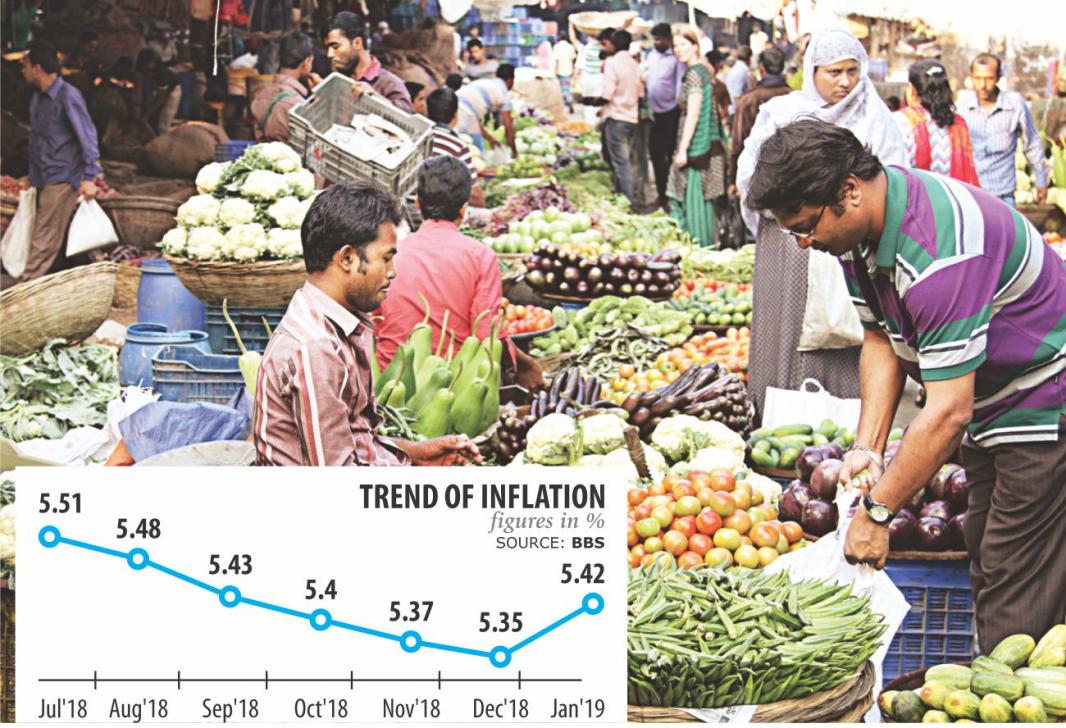Inflation rises after 16 months

Inflation rose in January—for the first time in the last 16 months—due to a hike in food and non-food prices.
Inflation stood at 5.42 percent in the first month of the year, up seven basis points from the previous month, according to Bangladesh Bureau of Statistics.
Inflation has been declining gradually since September 2017 when it stood at 6.12 percent.
Headline inflation in January 2019 increased relative to December 2018, but it was still lower than that of January 2018, according to Zahid Hussain, lead economist of the World Bank's Dhaka office.
The January 2019's inflation was within the range of 5.3 to 5.6 percent projected in the monetary policy statement announced by the Bangladesh Bank for the second half of the current fiscal year, he said in a reply to an email.
“The increases in both food and non-food inflation in January relative to December predominantly reflect the increases in food inflation in rural areas and non-food inflation in urban areas,” Hussain said.
“These could be reflecting demand pressures on prices due to election-related boost in private spending and a large increase in remittances in January.”
Food inflation was slightly up to 5.33 percent in January from 5.28 percent a month ago. Non-food inflation rose 12 basis points to 5.57 percent in January from 5.45 percent in December, BBS data showed.
The rise in import costs of consumer goods and industrial raw materials due to 2.2 percent depreciation of the taka against the US dollar in the first seven months of 2018-19 may also have contributed to it, Hussain said.
“A significant 2.1 percentage-point rise in food inflation in rural areas in January relative to December despite bumper aman harvest is puzzling. Stocking up by large market players and the lagged impact of the restoration of the 28 percent duty on rice imports may have counteracted the impact of bumper harvests on rice prices in rural areas.”
In January, analysts had warned that electoral expenditure would put pressure on inflation in the coming months.
Food items account for about 46 percent of the urban inflation and 61 percent of the rural inflation. In case of food inflation, prices of rice play a major role.
Prices of rice had begun to shot up before the December 30 general election and continued the momentum after the election.
Rice prices rose by Tk 2 a kg owing to the disruption in the supply chain because of the 11th general elections.
This led Sadhan Chandra Majumder, the new food minister, to sit with the rice traders in a meeting on January 10 to know the reasons for the price spiral of the staple.
The market is stable, the minister said in the meeting, adding that all the millers had promised not to increase rice prices further.
